Meat supply vacancies: 'Being a butcher is like being an artist'
- Published
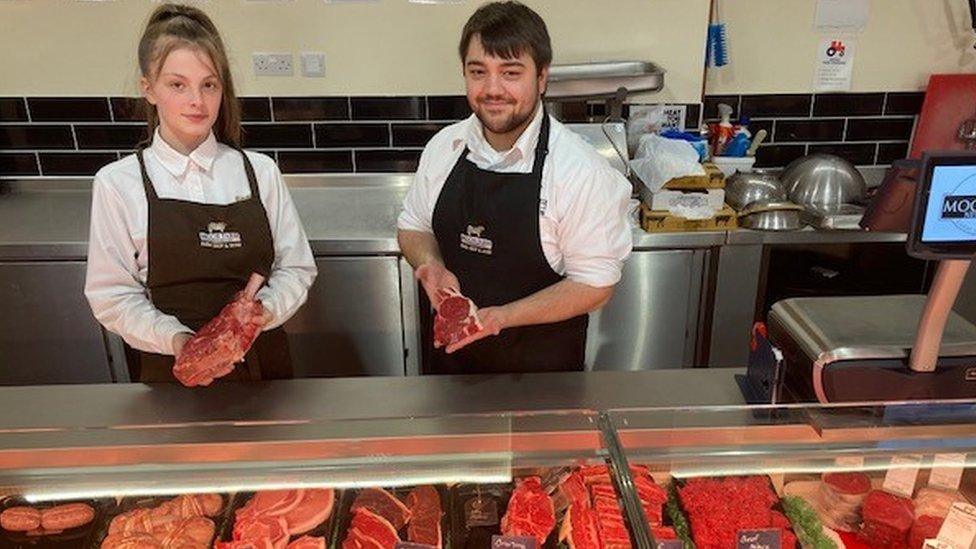
Lottie Mallia, 16, and Nathan Goodliffe, 22, both say they never saw themselves working as butchers but hope they might inspire others to take up the trade
The Association of Independent Meat Suppliers claims the industry currently has about 14,000 job vacancies. What is the trade like for young butchers?

'It's another way of art'
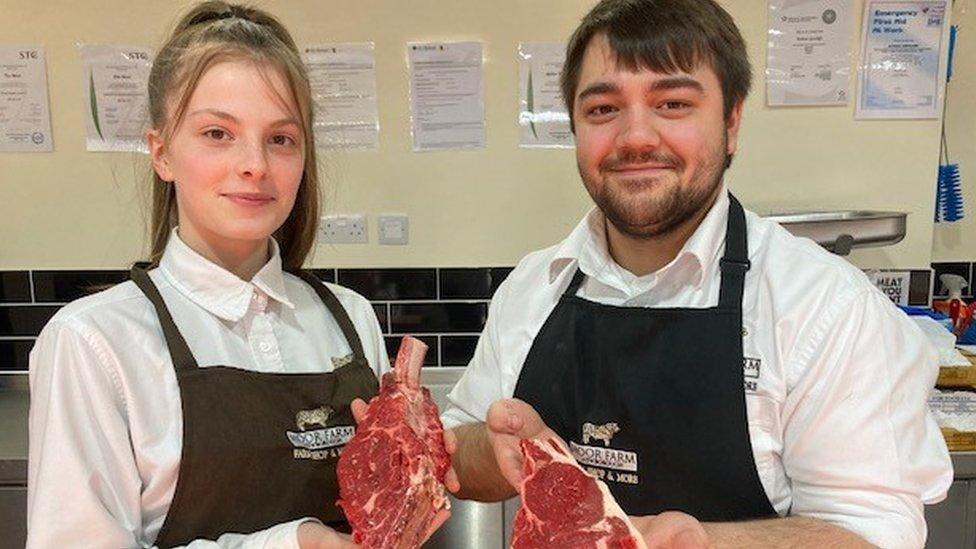
Miss Mallia and Mr Goodliffe show off their cuts of meat
Lottie Mallia, 16, is poised to begin an apprenticeship as a butcher.
She compares the trade to the work of an artist.
"The way you move when you're doing art, the way you handle the meat, the way you present it to customers on the shelf - everything is just amazing," she says.
Miss Mallia has been working at Moor Farm shop in Newborough, near Peterborough, Cambridgeshire, for six months since leaving school.
Having started off in the shop, she felt inspired after watching butchers at work to seek out a two-year apprenticeship.
The teenager says she is surprised to have ended up pursuing a job in the trade, especially since she initially felt "scared" of carcasses and razor-sharp knives.
"I never saw myself going into anything like this, but I wouldn't change it for the world," she says.
"I really enjoy coming into work every day - it's amazing.
"I did art as a GCSE and I feel butchery is a kind of art, so if I wasn't doing this I'd probably do a course in art."
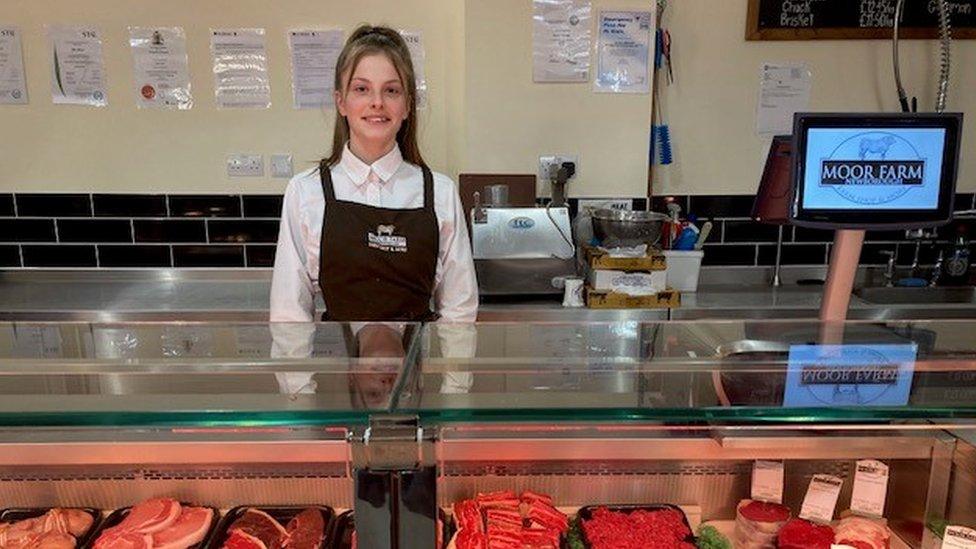
Miss Mallia joined the butchery department after working part-time in the shop
Miss Mallia says while the industry is male-dominated and butchers tended to be older, the job is a good fit as she doesn't mind getting her "hands dirty".
But she admits people often think she is joking when she tells them her job and don't understand how she can do it.
Despite that, Miss Mallia says she hopes to inspire other young people to think about it as a career.
While many of her friends have headed to college, she says she is pleased to be able to learn on the job and it's boosted her confidence.
She hopes it might lead to her and her father - a keen chef - opening their own café or a butcher's shop one day.
And she says there seems to be a theme in her family, which has recently relocated from the Cotswolds, about pursuing unlikely jobs.
"My mum also works in a funeral home - she doesn't mind looking at bodies either," says Miss Mallia.
"It's been her dream job her whole life and when we moved back to Peterborough she got into it."

'I'm doing something I love'
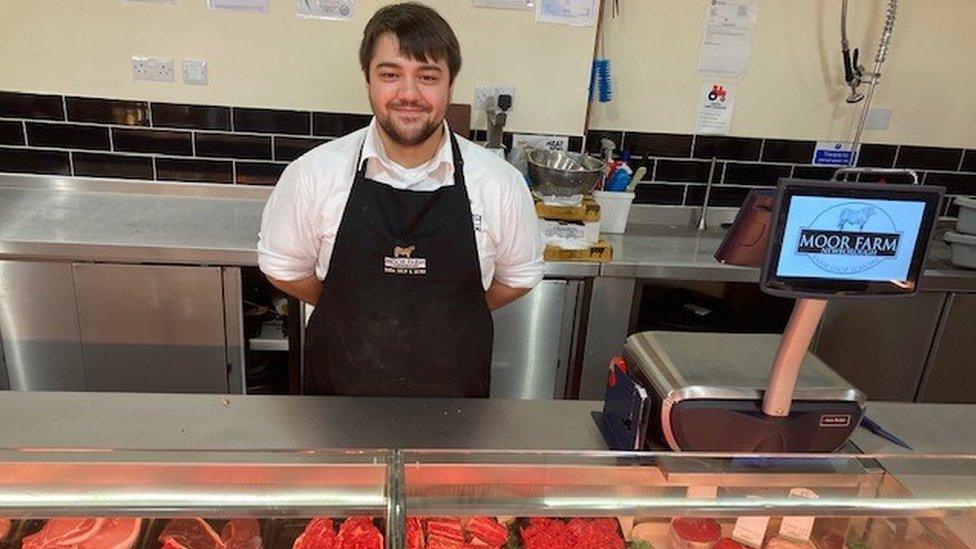
Mr Goodliffe became interested in learning more about meat while training to be a chef
Nathan Goodliffe, 22, has just completed his two-year apprenticeship and is now a qualified butcher.
However, it wasn't the career path he had originally set his heart on.
It was while training as a chef at college that he took on a job at a garden centre, working across the kitchens, butchery and farm shop.
"I was starting to enjoy more of how the meat is prepared for when I'm working in the kitchen," says Mr Goodliffe.
"I wanted to find out about where it's come from," he says. "I went across to the butchery, started asking some more questions and the boss saw I had enthusiasm.
"I've been happy and [I'm] pleased I chose that option. I am so thankful to my boss there who got me that apprenticeship and of where I am today.
"I'm absolutely loving it."
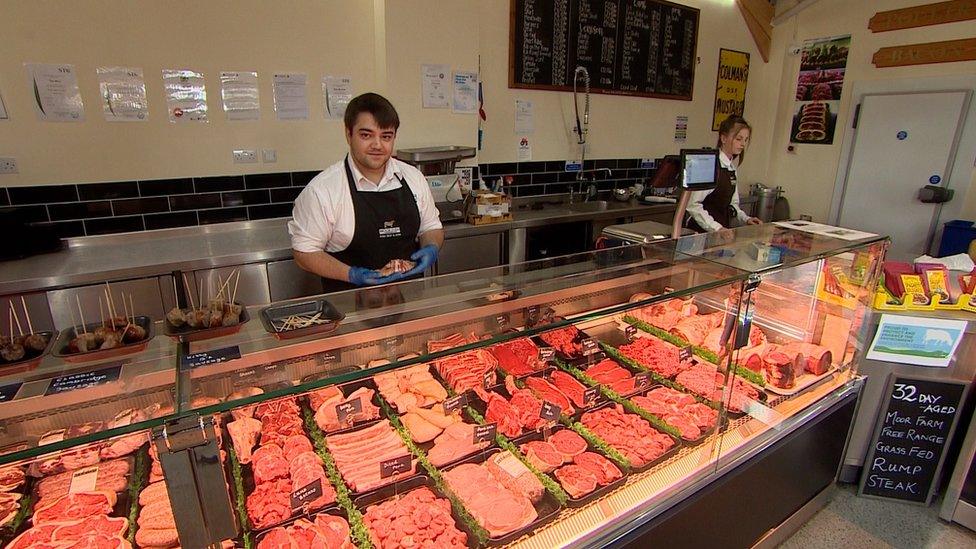
Mr Goodliffe says following his apprenticeship he believes he has a job for life
Mr Goodliffe recently switched jobs and now works at Moor Farm shop alongside Miss Mallia and admits being a butcher is a "different choice" for younger people.
While the Covid outbreak meant his traineeship had to be extended by six months, he says it gave him an insight into the importance of the job and how reliant people are on butchers.
He says the pandemic also made him appreciate the value of job security.
"It's a lot of hard grafting, getting stuck in and doing messy jobs, but things like that I love to do," says Mr Goodliffe.
"You learn a lot from it and it's a trade that's going to be around forever.
"There will always be a job for a butcher and I'm doing something I love."
Mr Goodliffe says all his training happened on-site, with tutors and assessors visiting him in Peterborough.
As well as learning the different cuts of meat, he also found out about animal welfare and traceability through visits to farms and slaughterhouses.
Amid the current labour shortage, Mr Goodliffe says he has made the right choice of career and has no qualms about suggesting it to others.
"If someone wants to gain a lot of experience and have a qualification for life, then butchery is the way to go because it's more than just being a butcher," he says.
"The amount of customers you get to meet on a daily basis, helping them, it's just a great experience.
"You're always busy and well stuck in, learning a lot - every day is a new day."

'It's the most wonderful skill to learn in life'

Industry leader Nick Allen says 15,000 butchers are needed by major meat processors alone
About 15,000 skilled and semi-skilled butchers are needed at major meat plants supplying the nation's supermarkets and leading shops alone, according to the British Meat Processors' Association (BMPA), which represents the sector.
"There will be many other local butchers and parts of the industry too, so there are a lot of jobs up for grabs," says Nick Allen, BMPA's chief executive.
"It's the most wonderful skill to learn in life.
"A really good, skilled butcher is like an artist - but it takes time. You don't learn it overnight."
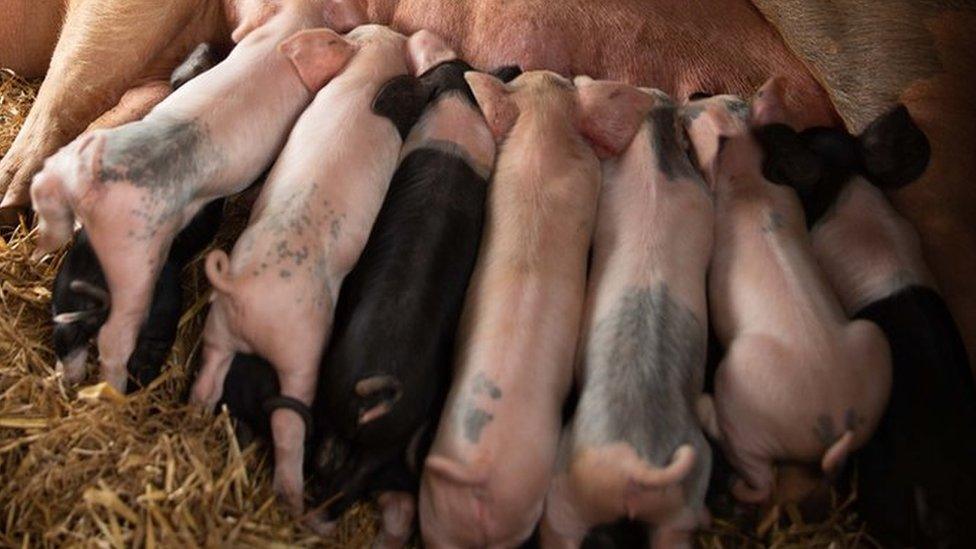
The labour shortage has brought with it the threat of a mass pig cull
The labour shortage has brought with it the threat of a mass pig cull as the adult animals are not being slaughtered fast enough, causing overcrowding on farms.
Mr Allen also says shoppers will already be seeing less choice on the shelves, and this will probably include some Christmas favourites people have come to expect.
He says many high street butchers start off working in factories where they are taught knife skills and about the different meat cuts.
Mr Allen says the labour shortages have come about in part as the meat processing industry had become dependent on workers from across Europe, which made up about 70% of the workforce at the point of Brexit.
"It's the fallout of being reliant on a much bigger job market for a long time," he says.
"It's going to take quite some time to get British people trained up to do this work at a time when there is a lot of other competition out there.
"We've got apprenticeship schemes starting, but the first battle is getting people interested in the first place."
The fact that butcher trainees need to be in close proximity when learning has also been set back by Covid restrictions.
Mr Allen says in a previous job he toured agricultural shows, with a butcher and chef doing demonstrations - and came to appreciate why it could be a fulfilling career.
"The audience was always totally mesmerised by watching the butcher in action - you could hear a pin drop," he says.

Find BBC News: East of England on Facebook, external, Instagram, external and Twitter, external. If you have a story suggestion email eastofenglandnews@bbc.co.uk, external
- Published6 October 2021
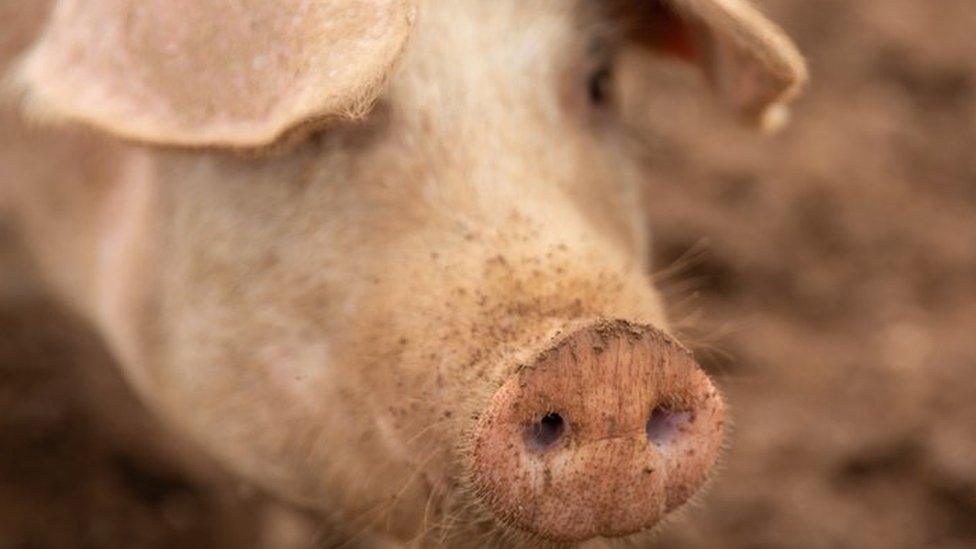
- Published1 October 2021

- Published23 September 2021
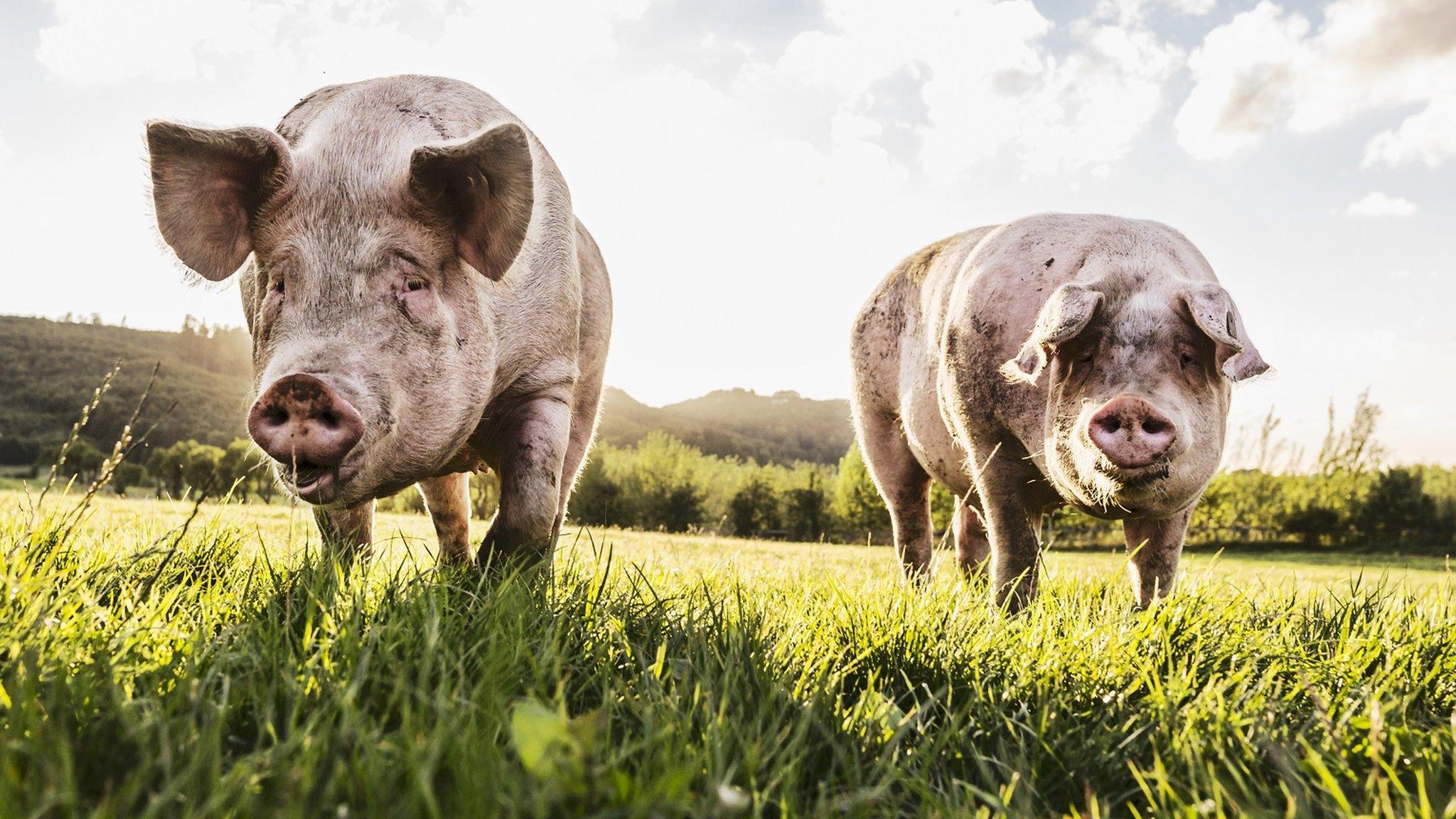
- Published16 July 2021
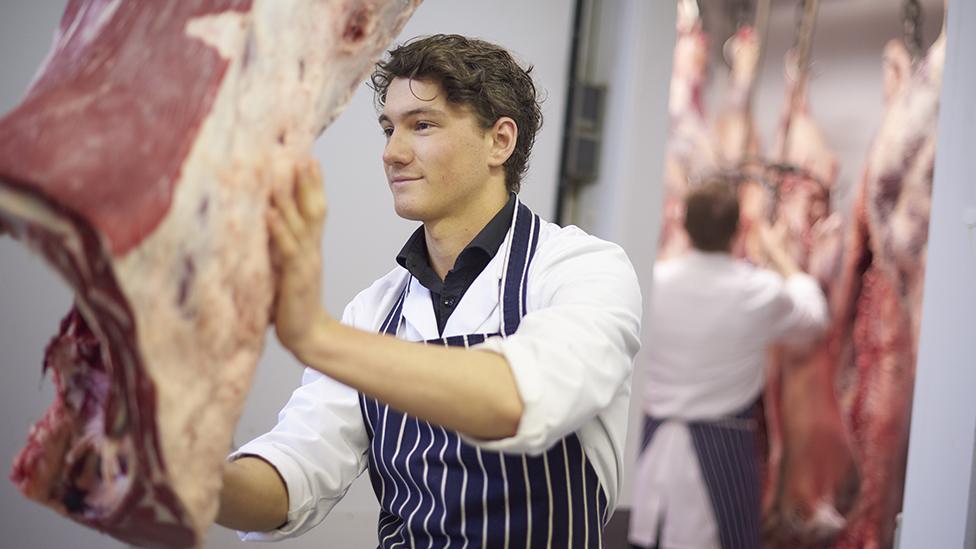
- Published3 March 2021
